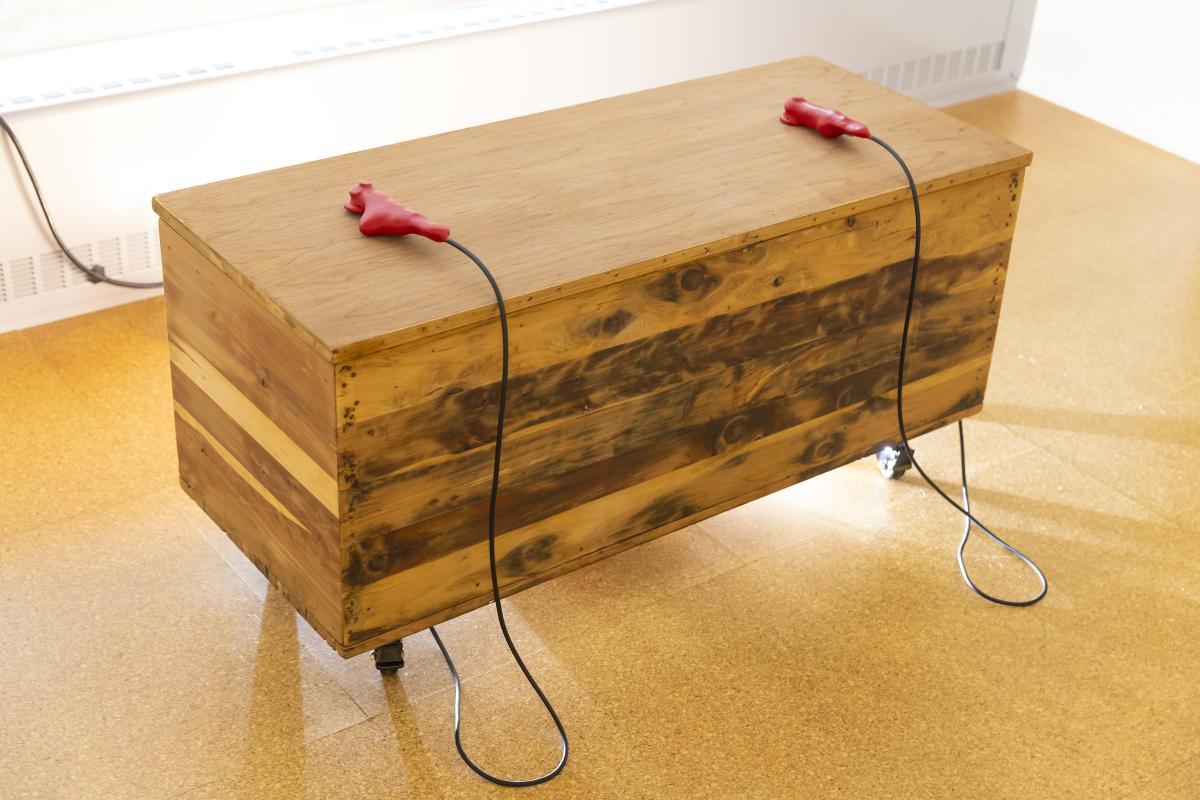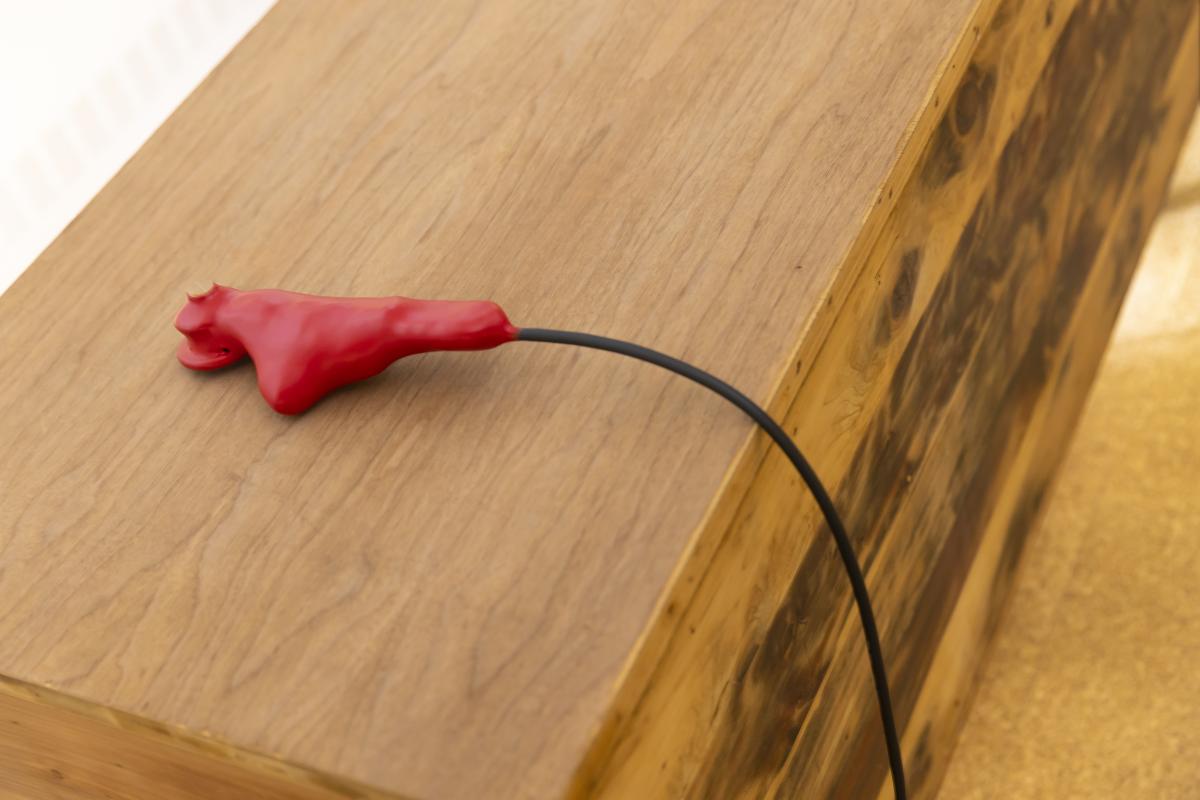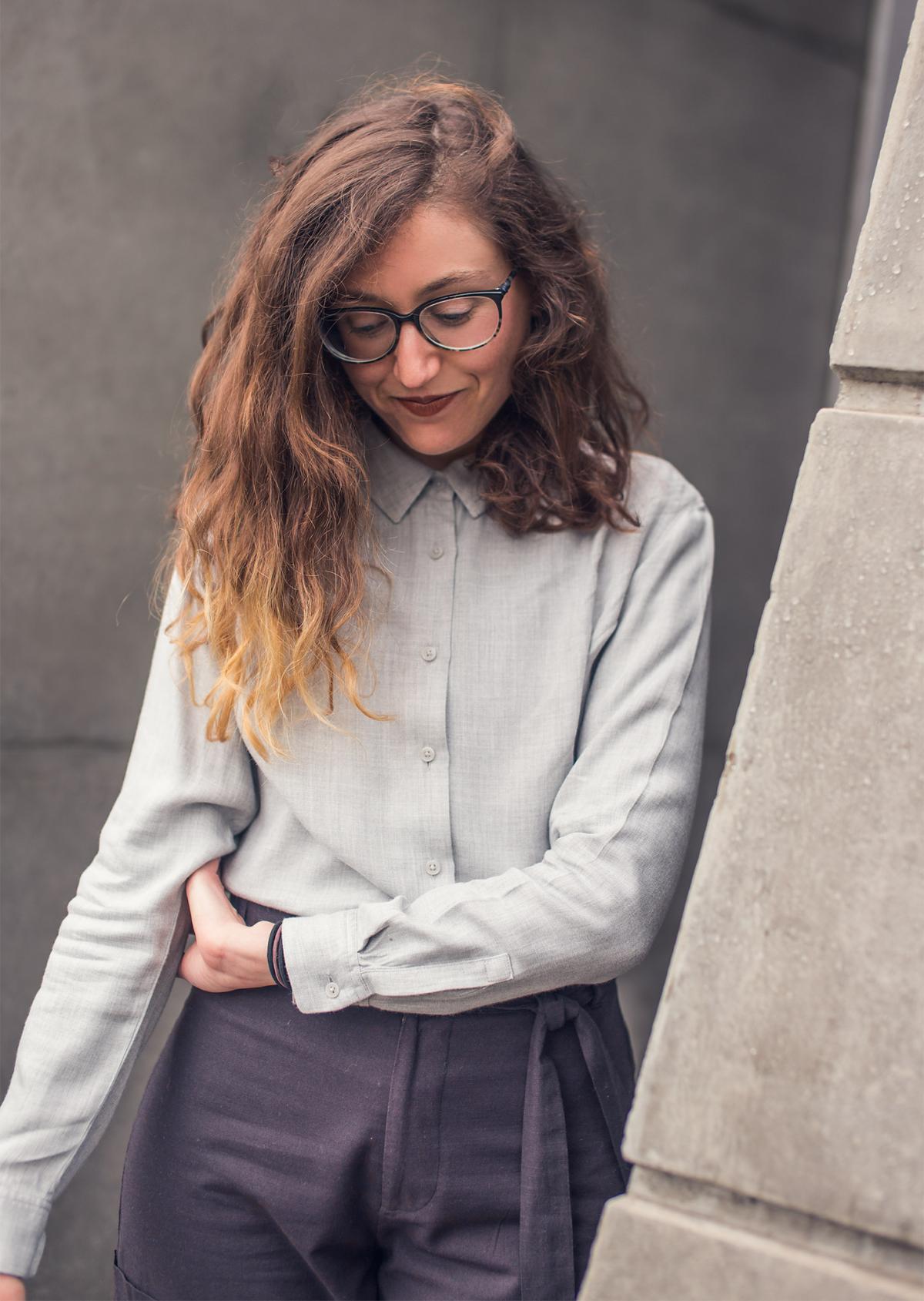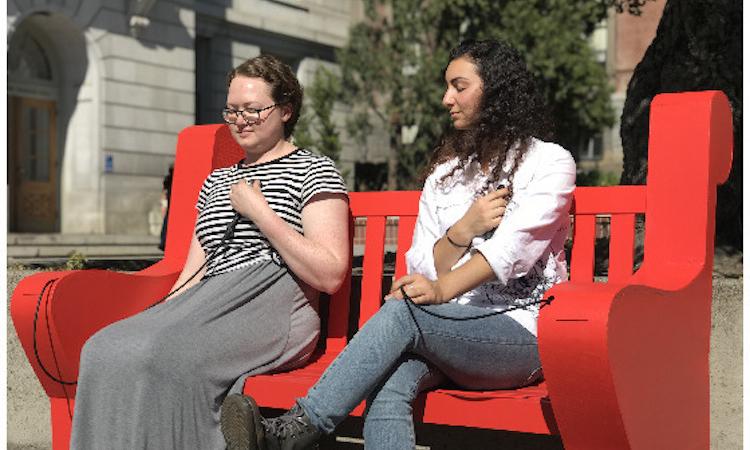Increasingly, sensors that people wear on their bodies, such as smart watches, or sensors embedded into buildings collect many different kinds of data about people's bodies and behaviors. Experts collect and analyze this data to make judgments about people for fitness, health, productivity, or security. But who are they to judge us, and what can you really know about anyone just from their data?
These sensors produce a wide range of data about people’s bodies, behaviors, and even claim to provide insight into people’s thoughts and feelings. This data is often enrolled to ‘know’ people more transparently, claiming to support normative ideas of safety, wellness, and productivity. Knowing people in terms of data-driven categories is problematic.
"If we examine the process of ‘understanding’ people and ideas from the perspective of Western thought, we discover at its basis is this requirement for transparency. In order to understand and thus accept you, I have to measure your solidity with the ideal scale providing me with grounds to make comparisons and, perhaps, judgments. I have to reduce... I relate it to my norm. I admit you to existence, within my system." — Édouard Glissant, Poetics of Relation, “For Opacity”

(text and background only visible when logged in)
I designed the Heart Sounds Bench to resist this will to know people more transparently via data. Drawing from postcolonial philosopher Glissant’s call for the right to opacity, I think biosensing technology should respect people’s right to be opaque, unknowable, to exist outside and beyond what it is possible to know via data. Too much gets lost in translation when people are reduced to data. Claims to knowledge with data should be humble and respect the diversity and complexity of human experiences.
The Heart Sounds Bench amplifies people's live heart sounds using modified stethoscopes. I chose to hack stethoscopes, a classic medical sensor, to invite an exploratory auditory experience of this sonic data. It does not analyze or record the sounds.

Research: Life-Affirming Biosensing in Public: Sounding Heartbeats on a Red Bench
‘‘Smart city” narratives promise IoT data-driven innovations leveraging biosensing technologies. We argue this overlooks a potential benefit of city living: affirmation. We designed the Heart Sounds Bench, which amplifies the heart sounds of those sitting on it, as well as recording and playing back the heart sounds of previous sitters. We outline our design intent to invite rest, reflection, and recognition of others’ lives in public space. We share results from a study with 19 participants. Participants expressed feeling connected to a shared life energy including others and the environment, and described heart sounds as feeling intimate yet anonymous. Finally, we elaborate the concept of life-affirmation in terms of recognition of others’ lives, feeling connection, and respecting untranslatable differences with opacity, as a way of helping “smart city” designs embrace a multiplicity of desires.
About the Artist
Noura Howell's work explores emotion recognition technologies, which claim to infer insights about emotional experience based on biosensory data, data about people’s bodies, thoughts, and behaviors. What can (and can’t) this data say about how we feel? How might this data shape the way we feel, and shape how we relate to ourselves and others? She explores these questions by building biosensing artifacts and inviting people to experience these artifacts with friends or strangers.
Howell is an assistant professor in Digital Media at Georgia Tech. She completed her PhD at the School of Information at the University of California, Berkeley, where she was a member of the BioSENSE lab. Previously she has worked as a human centered designer and engineer in Singapore, Morocco, and China, as well as at the MIT Media Lab, Intel Labs, Microsoft, and The Echo Nest.
Special acknowledgments: Alex Cohen, Imani Wilson, Stephanie Tang, Gary Gin, Chris Myers, Kuan-Ju Wu, Ryan Albertson, Kevin Rundong Tian, Mary Catherine Bassett, Seiyoung Jang, Bennett Shaeffer, Crank Sturgeon, Franchesca Spektor, Elizabeth Resor, Jeremy Gordon, Joyce Lee, Cesar Torres, Nitin Kohli, Richmond Wong.

